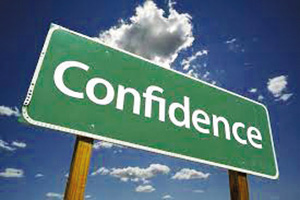
How is one not crushed by the all-encompassing demand of religion? How is it possible to fully commit oneself to an authentic religious life while maintaining a healthy sense of self?
These are life-long difficult questions that I imagine we all ask at one time or another. Religion, by its nature, involves a commitment that applies to the whole life of the individual. We don’t ideally seek out a bifurcated life, one that leaves religion in the synagogue and our own self for our home. And at the same time, it can seem difficult to have a fully integrated religious life. Judaism has so many rules. Once we learn about one we find that there are 20 more details. It never seems to end. And once one turns 12 or 13, they are suddenly faced with the fullness of the Shulchan Aruch and it is overwhelming.
As someone who naturally is a rule-follower who has wanted to really do the right thing, these issues gnawed at me as a young man. I distinctly remember when I first stumbled upon an eight-part series on self-confidence from Rabbi Reuven Leuchter, shlit”a, that forever changed my thinking on these issues. Rabbi Leuchter was raised in Switzerland and became a baal teshuva in his younger years. He was a longtime student of the late Rabbi Shlomo Wolbe and is an important educator in Israel.
In these lectures Rabbi Leuchter points to the words God says to Moshe in last week’s parsha after giving the Ten Commandments: “Thus shall you say to the Israelites: You yourselves saw that I spoke to you from the very heavens:” Rabbi Leuchter understands that this paradigmatic experience establishes our relationship to Torah both quantitatively and qualitatively. Torah was given from Heaven, which means that it is an otherworldly document. It is a gift with which we are given the chance to connect. The nature of Torah is that it will on some level always remain inaccessible, in Heaven so to speak; We are never able to fully actualize it. To us it might appear that we are falling short of the Torah’s expectations. That is not because we didn’t try hard enough. It is because of the irreducible dichotomy separating physical human beings from a heavenly Torah.
That shouldn’t make us feel crushed; Rather, we should feel honored to be given such responsibility. Rabbi Leuchter suggests a metaphor from his youth in Switzerland. He says we should view ourselves as rescue personnel working in the Swiss Alps. Rescue workers don’t have time to reflect on their own inadequacies when saving a lost skier. Rather, they appreciate the seriousness of the task and therefore rise to the occasion as necessary. As Jews, we have been given the profound task of proclaiming God’s name throughout the world through Torah and mitzvot. We will always fall short, but that should only remind us of the greatness of the obligation and the importance of the task.
The importance of having realistic expectations of ourselves is succinctly conveyed by a line attributed to the Kotzker Rebbe. Commenting on the words of this week’s parsha “V’anshe kodesh tehiyun Li, and holy men you shall be for Me” (Shemot 22:30), the Kotzker reportedly said, “God has more than enough angels in Heaven; He wants us to be holy people, not angels.” This idea is often coupled with the words at the end of last week’s parsha “Lo ta’aleh b’maalot al mizbichi” (Shemot 20:23), which literally refers to the prohibition of building a staircase to the altar, but homiletically means that we should not be stepping too quickly in our religious growth. Progress is gradual and the more mature we become the more we realize the need to move at the level that befits us.
None of this means to take away and minimize the need to keep all the mitzvot; We are of course obligated to do all we can. At the same time, Rav Leuchter, in the same lecture series, reminds us that the Torah always has a recommendation for us. No matter how low we have fallen, there is always a step we can take in the positive direction. The Torah speaks to human beings, with all our foibles and limitations. We may never be able to fully actualize the Torah’s vision for mankind but we can always recall how privileged we are to be called upon to be the anshei kodesh God believes we can be.
Rabbi Zachary Rothblatt is a Judaic Studies teacher at The Idea School.













